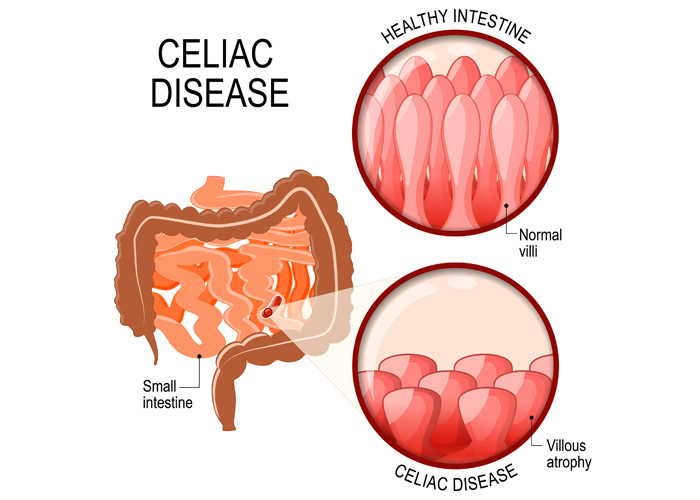Celiac Disease: Causes, Risk Factors, Screening, and Diagnosis

Celiac disease is a genetic autoimmune disorder that affects the digestive system. It is characterized by an intolerance to gluten, a protein found in wheat, barley, and rye. When someone with celiac disease consumes gluten, their immune system mistakenly attacks the lining of the small intestine, which can lead to a range of symptoms and long-term health complications if left untreated.
Causes and Risk Factors: Celiac disease is a genetic disorder that tends to run in families. It is triggered by the consumption of gluten, which causes an abnormal immune response in people with the disease. However, not everyone with the genetic risk factors will develop celiac disease. Other factors that can increase the risk of developing celiac disease include having other autoimmune disorders, such as type 1 diabetes or thyroid disease, and having a family history of celiac disease.
Screening and Diagnosis: Celiac disease can be difficult to diagnose because its symptoms can mimic those of other digestive disorders, and not everyone with the disease experiences digestive symptoms. The most reliable way to diagnose celiac disease is through blood tests that look for specific antibodies produced by the immune system in response to gluten. If these tests are positive, doctors may then perform a biopsy of the small intestine to confirm the diagnosis.
Treatment: The only treatment for celiac disease is to follow a strict gluten-free diet for life. This means avoiding all foods and products that contain wheat, barley, and rye. It’s also important to read food labels carefully and be aware of hidden sources of gluten, such as sauces, dressings, and seasonings. In most cases, following a gluten-free diet will help to relieve symptoms and prevent long-term complications. In some cases, additional medications or supplements may be needed to help manage symptoms or correct nutrient deficiencies.
It’s important for people with celiac disease to work closely with a healthcare team, including a gastroenterologist and a registered dietitian, to manage the disease and ensure proper nutrition. Regular follow-up care and monitoring are also important to check for potential complications and ensure that the gluten-free diet is being followed correctly.
